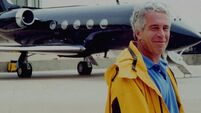Sudan leader orders tribes to disarm militias in bid to end violence
The decision, announced after two days of talks between government officials and Darfur tribal chiefs, comes amid intense international pressure to end the Darfur crisis, which has forced more than one million people from their homes.
The United Nations has described Darfur’s plight as the world’s worst humanitarian crisis. The European Union, United States and humanitarian groups have accused Mr el-Bashir’s government of backing the Arab militias, known as the Janjaweed, with vehicles, helicopters and airplanes - a charge denied by Sudanese officials.














